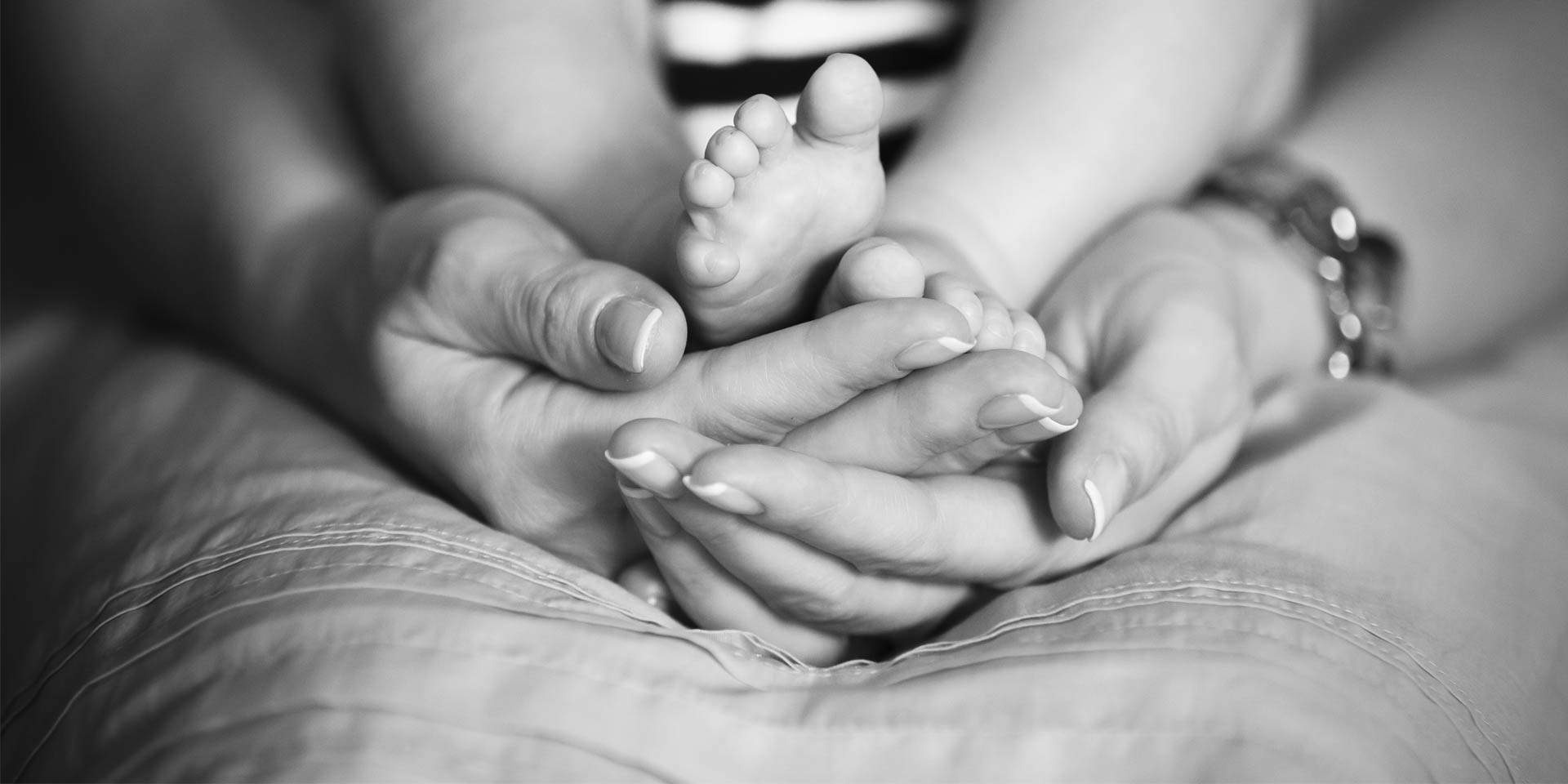Dr Denise Dunzweiller, of Walla Walla University in the north-west of the United States, has emerged as a passionate advocate of inclusive education, a technical term for education systems in which children with disabilities are educated alongside other children in mainstream schools, rather than in special classes.
Dr Dunzweiller’s interest in inclusive education, however, did not have a theoretical or philosophical starting point, but a very personal one. In the following interview, we discover the pivotal role that God played in her experience of raising a disabled child.
In a way, it all started with your son.
That’s right, with Seth. When he was born, the doctor took too long to come. We were in La Sierra, California. Thank God for the Loma Linda University Hospital. A helicopter was sent to the hospital just outside of La Sierra. Seth was picked up and taken to the neonatal unit at Loma Linda University Hospital.
It was not a congenital malformation.
It was an accident. He suffered from oxygen deprivation because the doctor arrived late. By the time he arrived, Seth had aspirated secretions known as meconium. His lungs filled up and he couldn’t breathe. He became jaundiced and had seizures. Paramedics from Loma Linda were called. They were able to resuscitate him and take him to Loma Linda. He was there for about three weeks. He was in critical condition. We didn’t know if he was going to make it. After three weeks I was told we could take him home.
We learnt how to take care of him at the hospital. He was given phenobarbital for his seizures. He had respiratory failure. We had to learn a lot. The doctors told us he wouldn’t be able to go to school, wouldn’t be able to cross the road by himself. When he was only three weeks old, they told us all these terrible things. As a new mother and a new teacher, I was shocked.
I was also newly religious. I was overwhelmed. After Seth was born, my life changed in so many ways. During Seth’s first five years, my husband left me and we got divorced. For six years I lived in a desert. I had no connection with the church or God for five or six years.
Then God brought a pastor into my life. When Seth was ten, we started attending Santa Rosa Church again. I didn’t have any particular reason. I just felt like I needed to go to church. I talked to the pastor. I was withdrawn, sitting in a corner, just wanting to get out as soon as possible with my son. He asked me what had brought me to the church. I told him I had no idea. I told him I had left the church about five years before and wandered in the desert. I repeated that I didn’t know why I had come and that I might not come the following week. He told me that he knew why I had come. He told me that they had had a week of continuous prayer specifically for those who had left the church throughout the Northern California region. They had been praying for these people to return to their church. I was amazed! It was the beginning of my renewed relationship with God.
I spent two weeks attending Bible studies with a visiting pastor at our church. The reason was that Seth had seen a notebook with beautiful pictures of the Holy Land. He wanted to attend every night so that he could receive the notebook at the end of the two weeks. Several altar calls were made. After the last call I sat down and opened my eyes. When I looked up, there was my son in front of me. Eventually, he was baptised at 14 and I was rebaptised. From then on, God has been everything for Seth and me.
Let’s get back to the present.
Seth is now 36 years old. He’s very handsome. He crosses the street by himself and can do many other things. The doctors were wrong. It’s all because of God’s presence in his life. God has changed him in ways the doctors never thought possible. They judged through the prism of other children they had treated. He still doesn’t write very well or read very much. But he uses the computer and reads small books. He has had several jobs. He has worked in fast food restaurants. He also worked for a company that shipped carpets all over the world.
He is now training to make clothes at a school that works with people with severe brain injuries. Seth has the same problem. But he can call me on the phone and we can talk. We also Skype. He goes skiing. He loves sports. He rides horses, plays basketball, swims under water. He has a great life.
He’s very adventurous!
Yes, yes, yes. He learns well by interacting with his environment. I took him everywhere when I moved.
Is he an optimist? Is he happy?
He’s happy. He knows how to enjoy life. He still lives in Tennessee where I left him.
I hadn’t been away from him until I went to work in the Philippines. I didn’t want to take him out of his comfort zone, away from school, away from work, away from the people he loved. Two young people who are like my children, like a sister and brother to Seth, have been living with him for five years. He’s done amazing things since I left. Having a “sister” and “brother” by his side, rather than just a mother, has made him more independent. He is active in the church.
Let’s expand on the concept of inclusive education.
Teachers need to be trained to teach all students in the classroom. If the pupils have learning difficulties, teachers need to know how to work with them. If the students are gifted, then teachers need to know how to work with them as well.
So you cover both extremes.
And everyone else. Teachers need to be able to meet the needs of all the pupils in the class.
So the idea is to stop having special education classes for disabled pupils and to integrate them into “mainstream” classes?
Exactly. Research has shown, and continues to show, that students with special needs who are taught in a mainstream classroom make greater progress in socialisation and behavioural change, and perform comparably to other students in school. If we take them and put them in a special class, they learn to interact with other people with other special needs. They learn their behaviour, but they don’t learn anything that prepares them for the real world. The “normal” pupils also benefit. They learn to accept those who are different from them. They become more compassionate and competent. It’s also important to know how to behave.
It’s not enough to be compassionate. It’s also necessary to be informed.
Their academic performance also improves. The explanation is that they teach their peers what they already know. When they teach their peers, the information is easily updated.
You have been instrumental in bringing this concept into the Adventist education system.
I was part of a 13-member committee that worked for two years to develop an inclusion programme. You can find it on the internet and in many other places. At the same time, this kind of education is becoming more and more widespread in the United States. Public schools are becoming interested in inclusive education, not because it’s the best way, nor because it’s the Christian way. Jesus teaches us to be inclusive and accepting of all. He excluded no one from His Christian education. But the motivation of the authorities is money. Special education in the United States is very expensive. Special educators are becoming harder to find because the job is so difficult. Many get burned out and give up.
I don’t work in education, but it seems to me that modern public schools are designed like assembly lines. Perhaps I have used a harsh expression. It sounds like you are dealing with standardised components that need to be assembled in a standardised way. The end product has to be standardised.
You are absolutely right. Schools were born in the age of industrialisation. You have expressed very well what the idea was. Industrialisation-specific procedures were adopted. We take those elements and we get a certain end product. That’s pretty much how education was for a very long time. It was a big struggle for the education system to accept change. It’s against the grain. Jesus did the same thing.
Perhaps some of the people reading this interview have children with disabilities. From your experience—you were shocked, you were in pain, you gradually accepted the reality and found resources—would you like to address parents with children with disabilities?
I hadn’t thought about that possibility. I would have a lot to say to them. First of all, love God. If you have God’s love, you can do anything. Absolutely anything. That has to be the number one thing in your life. If you have a relationship with God, you can live with a disabled child more easily.
Secondly, love your child no matter what. Children are children. Some children we call “normal” are never normal. We don’t really know what normal means. Whether you have a child with a disability, a gifted child or a child with behavioural problems, you need to love them unconditionally. You may not like what they do sometimes, and you need to learn the difference between who they are and what they do. But you must always love them for who they are. God will give you the strength to do this. I learned that I had to educate myself better. I had to understand who this boy was. He was very different from any other child I had ever known.
It’s important to study. It’s good to have a friend, a group of friends, and a book to read. If you have friends who have faced the same problem, if you read about such experiences, it will be easier for you because you will find that you are not alone in this situation.
For the first six years of my son’s life, I felt very alone. I thought that no one I knew understood me. They accepted me and my son, but they were very distant. They didn’t understand us and I couldn’t turn to them for help. It’s good to find someone.
I recommend that you read up on your child’s disability. That way you will be able to help your child at home. If you have a child in a special school, talk to the teacher, how they work with them, how the child is developing, what you can work on with them at home.
I understand parents very well. It’s a wonderful adventure to raise a disabled child.
My life has changed completely. Looking back 36 years later, I wouldn’t have it any other way. I’m doing exactly what I’m supposed to be doing, I’m exactly where I’m supposed to be. I can say the same thing about Seth. It’s all thanks to God, who has loved me through the difficult times, who has helped me to study and learn. I am trying to do the same for Seth. My life story is a happy one. If you had asked me 25-30 years ago, I would have had a different opinion.
Time changes your perspective.
It certainly does. So does love.
You’ve got me intrigued. Maybe one day I’ll go to Tennessee to Southern Adventist University to interview Seth and hear his side of the story.
That would be great.
Let’s change direction a little bit. When you told us about your life journey, you said that you felt very alone for a while. The truth is that we don’t know how to treat parents who have these problems. We want to do something for them. But we feel powerless. What should we do?
That’s an excellent question. First of all, we need to encourage these families. We can meet such people in church, perhaps hidden in a corner. It’s good to greet them and show them love in church, even if they have a child who runs wild or lies absent in a wheelchair. Above all, we must love them. Invite them into your home. We must be aware that there will be changes in our family that we have never experienced before. But we have to reach out to those families who feel very isolated. We have to make them feel at home. When we invite them over, we have to do it more than once. I used to turn down the first four or five invitations. We have to be there for them, talk to them, ask them about their child, find out what their disability is. It’s good to research and find out more things to share with the family. The rule of thumb is friendship.
We will have friends who are different from everyone else. First of all, they are people. Children with disabilities are children first. The disability does not overshadow the fact that they are children. I appreciated those who came and asked me about Seth. If you are at a social event where there is a family with a child with a disability, be as friendly as you would be to anyone else. Meet them, introduce yourself, ask them about their whole family, their life, just like you are doing with me now.
People like to talk, it does them good to hear themselves say what they think and feel. First they need to gain the confidence to express their feelings. This takes time. We have to love them and acknowledge that they are human beings first and foremost.
Thank you very much!
Note: This is a television interview by Adrian Bocaneanu, broadcast on the Romanian HopeTV channel. The transcript of the interview has been edited for brevity and clarity.



















